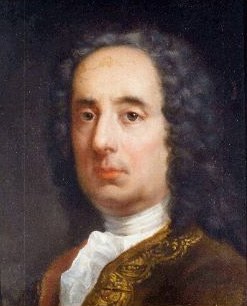|
Bononcini (1642–1678), Italian violinist and composer, father of both of the above.
{{surname ...
Bononcini is a surname. Notable people with the surname include: *Antonio Maria Bononcini (1677–1726), Italian cellist and composer *Giovanni Bononcini (1670–1747), Italian Baroque composer, cellist, singer, and teacher *Giovanni Maria Bononcini Giovanni Maria Bononcini (bap. 23 September 1642 – 18 November 1678) was an Italian violinist and composer, the father of a musical dynasty. In 1671 Bononcini the elder became a court musician at Modena Modena (, , ; egl, label= Modene ... [...More Info...] [...Related Items...] OR: [Wikipedia] [Google] [Baidu] |
Giovanni Bononcini
Giovanni Bononcini (or Buononcini) (18 July 1670 – 9 July 1747) (sometimes cited also as Giovanni Battista Bononcini) was an Italian Baroque composer, cellist, singer and teacher, one of a family of string players and composers. Biography Early years Bononcini was born in Modena, Italy, the oldest of three sons. His father, Giovanni Maria Bononcini (1642–1678), was a violinist and a composer, and his younger brother, Antonio Maria Bononcini, was also a composer. An orphan from the age of 8, Giovanni Battista studied in the music school of Giovanni Paolo Colonna at San Petronio Basilica in Bologna (perhaps in 1680 or 1681). In 1685, at the age of 15, he published three collections of instrumental works (in two of which he gave his age as 13). On 30 May 1686, he was accepted as a member of the prestigious Accademia Filarmonica di Bologna. His services were already much in demand: he worked at San Petronio as a string player and singer, published further collections of instru ... [...More Info...] [...Related Items...] OR: [Wikipedia] [Google] [Baidu] |
Antonio Maria Bononcini
Antonio Maria Bononcini (18 June 1677 – 8 July 1726) was an Italian cellist and composer, the younger brother of the better-known Giovanni Bononcini. Bononcini was born and died at Modena in Italy. Like his brother, he studied with Giovanni Paolo Colonna. Between 1690 and 1693, he played in the orchestra of Cardinal Pamphili. In 1698 he composed an allegory, ''La fama eroica'', for performance in Rome. He worked for some years with his brother, and joined him in the court orchestra at Vienna, where in 1705 he became ''Kapellmeister'' to the future Holy Roman Emperor Charles VI. In 1713 he returned to Italy, where he worked in Milan, Naples and Modena. In 1721 he became the ''maestro di cappella'' in Modena, where he remained for the rest of his life. In addition to his stage works, he composed over 40 cantatas (most of them for solo voice and harpsichord), as well as sacred music including a ''Mass in G minor'', a '' Stabat Mater in C Minor'', and a ''Salve Regina The "S ... [...More Info...] [...Related Items...] OR: [Wikipedia] [Google] [Baidu] |

